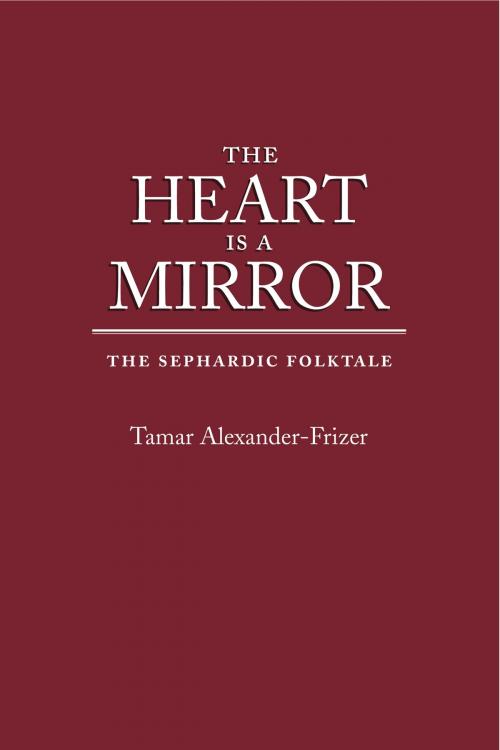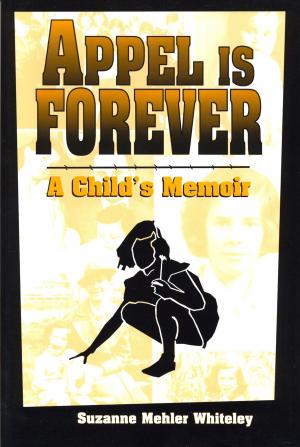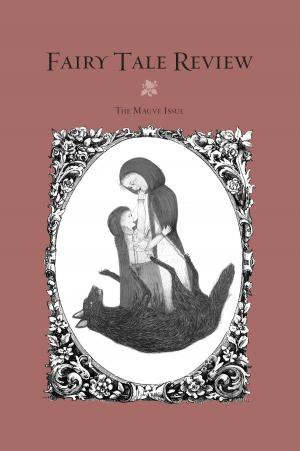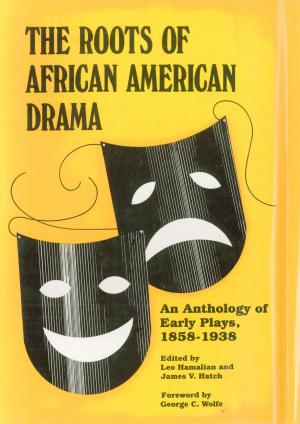The Heart Is a Mirror
The Sephardic Folktale
Fiction & Literature, Literary Theory & Criticism, Jewish, Nonfiction, Social & Cultural Studies, Social Science, Folklore & Mythology, History| Author: | Tamar Alexander-Frizer | ISBN: | 9780814340059 |
| Publisher: | Wayne State University Press | Publication: | December 6, 2007 |
| Imprint: | Wayne State University Press | Language: | English |
| Author: | Tamar Alexander-Frizer |
| ISBN: | 9780814340059 |
| Publisher: | Wayne State University Press |
| Publication: | December 6, 2007 |
| Imprint: | Wayne State University Press |
| Language: | English |
Since their expulsion from Spain in 1492, Sephardic Jews have managed to maintain their Jewish faith and Spanish group identity and have developed a uniquely Judeo-Spanish culture wherever they settled. Among the important cultural ties within these Sephardic groups are Judeo-Spanish folktales, stories that have been passed down from generation to generation, either in the distinct language of the group, Judeo-Spanish (Ladino), or in other languages, such as Hebrew. In The Heart Is a Mirror, Tamar Alexander-Frizer examines the folk narratives of Sephardic Jews to view them both in relation to universal narrative traditions and the traditions of Jewish culture. In part 1, Alexander-Frizer investigates the relationship between folk literature and group identity via the stories’ connection to Hebrew canonical sources, their historical connection to the land of origin, their treatment of prominent family members and historical events, and their connection to the surrounding culture in the lands of the Spanish Diaspora. Part 2 contains an analysis of several important genres and subgenres present in the folktales, including legends, ethical tales, fairy tales, novellas, and humorous tales. Finally, in part 3, Alexander-Frizer discusses the art of storytelling, introducing the theatrical and rhetorical aspects tied up in the Sephardic folktales, such as the storyteller, the audience, and the circumstances of time and place. This thorough and thought-provoking study is based on a corpus of over four thousand stories told by descendents of the Spanish Diaspora. An introduction addresses methodological problems that arise from the need to define the stories as Judeo-Spanish in character, as well as from methods used to record and anthologize them. Jewish studies scholars, as well as those interested in folktale studies, will gain much from this fascinating and readable volume.
Since their expulsion from Spain in 1492, Sephardic Jews have managed to maintain their Jewish faith and Spanish group identity and have developed a uniquely Judeo-Spanish culture wherever they settled. Among the important cultural ties within these Sephardic groups are Judeo-Spanish folktales, stories that have been passed down from generation to generation, either in the distinct language of the group, Judeo-Spanish (Ladino), or in other languages, such as Hebrew. In The Heart Is a Mirror, Tamar Alexander-Frizer examines the folk narratives of Sephardic Jews to view them both in relation to universal narrative traditions and the traditions of Jewish culture. In part 1, Alexander-Frizer investigates the relationship between folk literature and group identity via the stories’ connection to Hebrew canonical sources, their historical connection to the land of origin, their treatment of prominent family members and historical events, and their connection to the surrounding culture in the lands of the Spanish Diaspora. Part 2 contains an analysis of several important genres and subgenres present in the folktales, including legends, ethical tales, fairy tales, novellas, and humorous tales. Finally, in part 3, Alexander-Frizer discusses the art of storytelling, introducing the theatrical and rhetorical aspects tied up in the Sephardic folktales, such as the storyteller, the audience, and the circumstances of time and place. This thorough and thought-provoking study is based on a corpus of over four thousand stories told by descendents of the Spanish Diaspora. An introduction addresses methodological problems that arise from the need to define the stories as Judeo-Spanish in character, as well as from methods used to record and anthologize them. Jewish studies scholars, as well as those interested in folktale studies, will gain much from this fascinating and readable volume.















